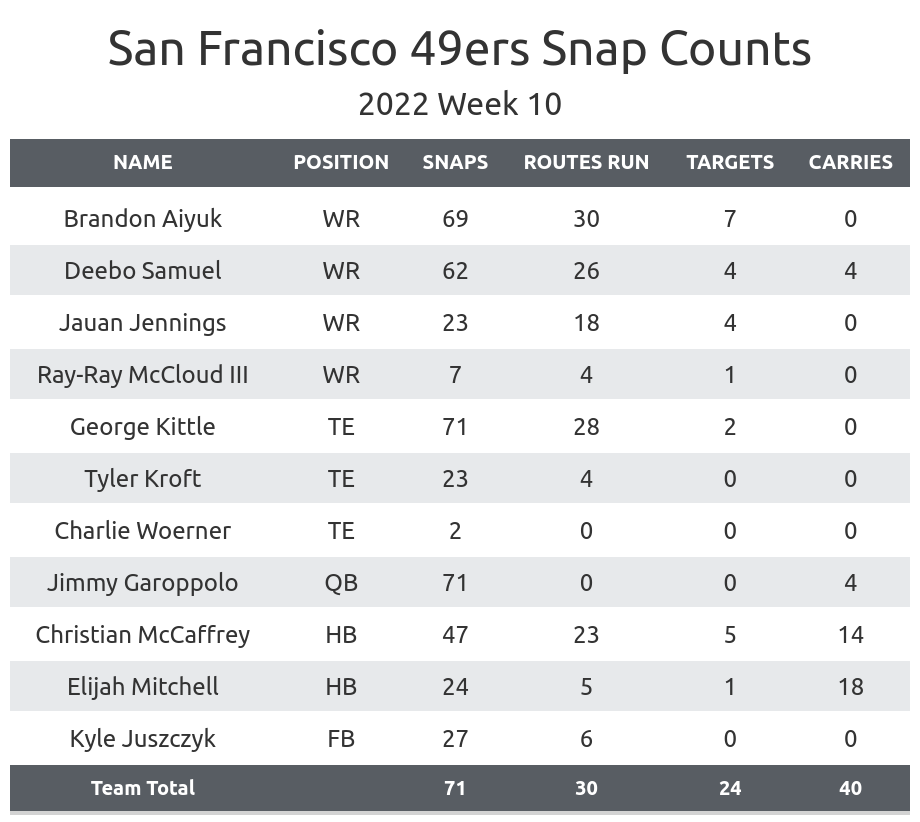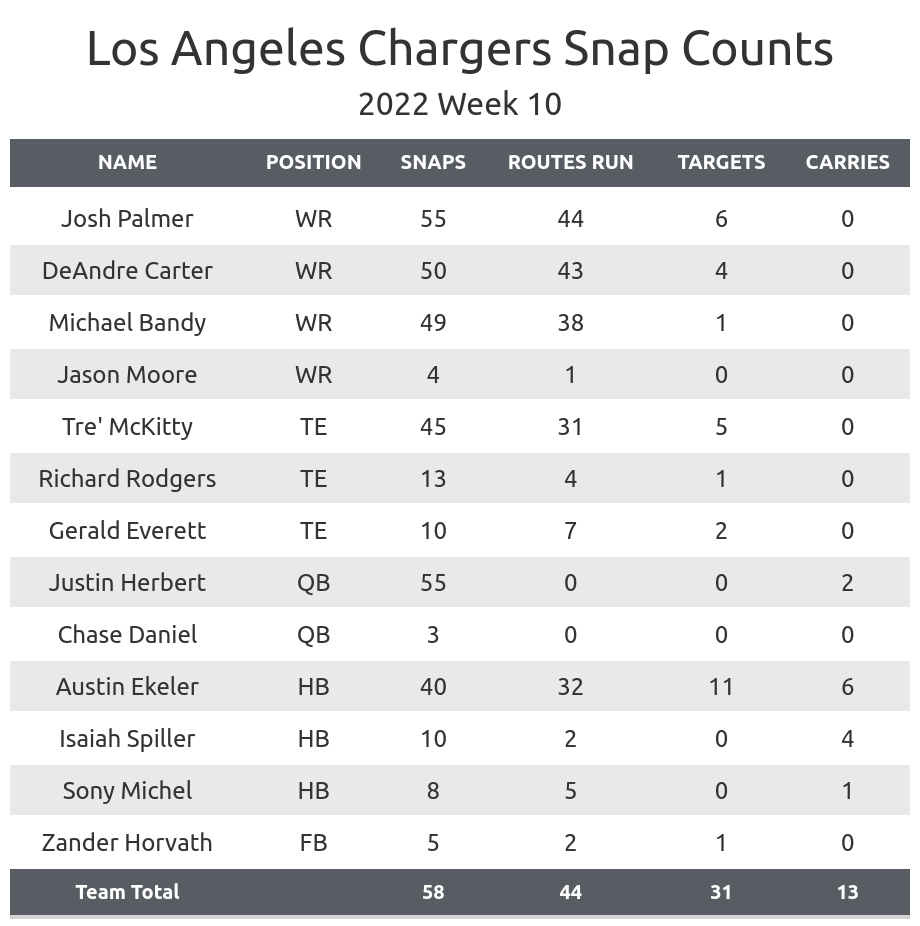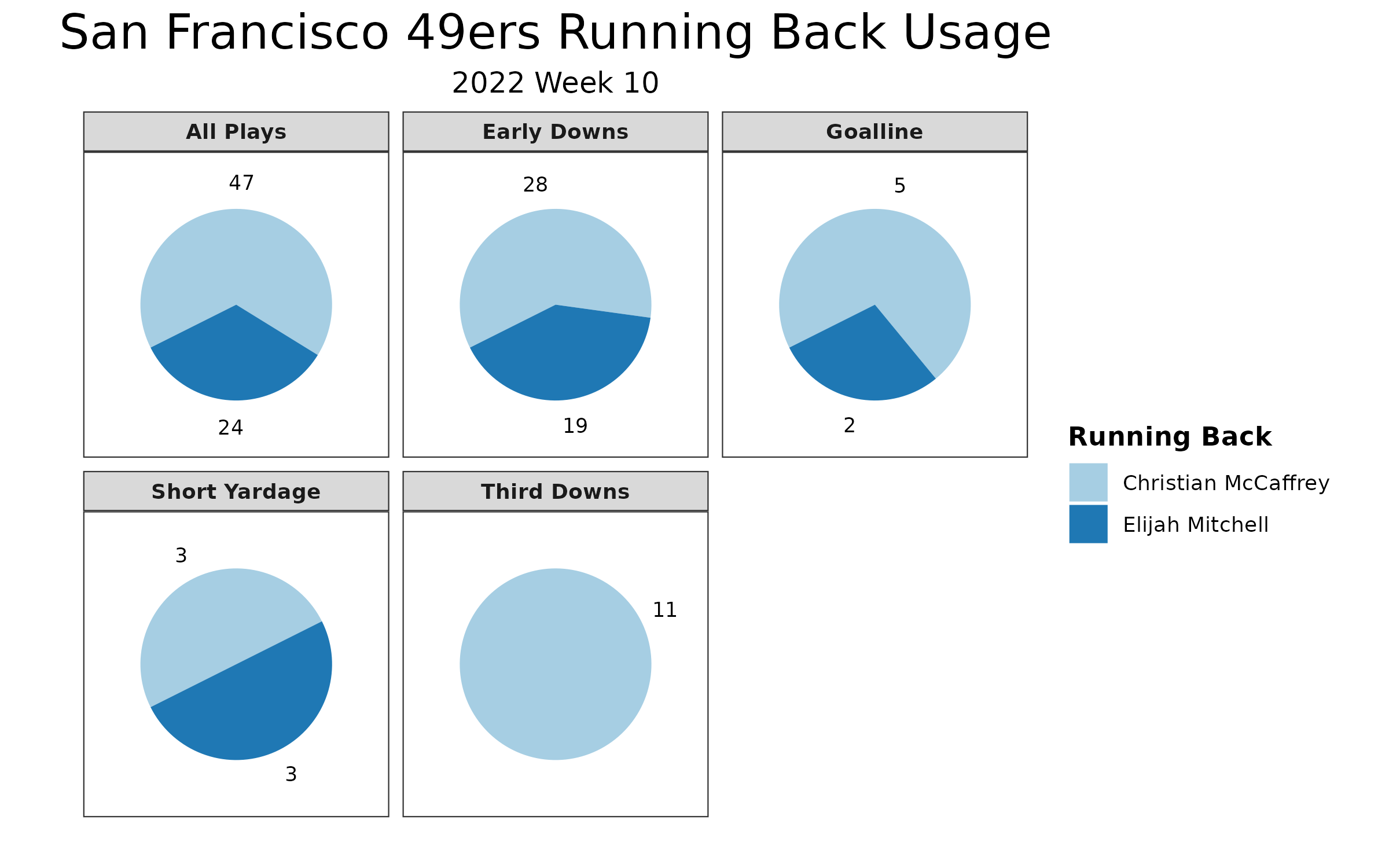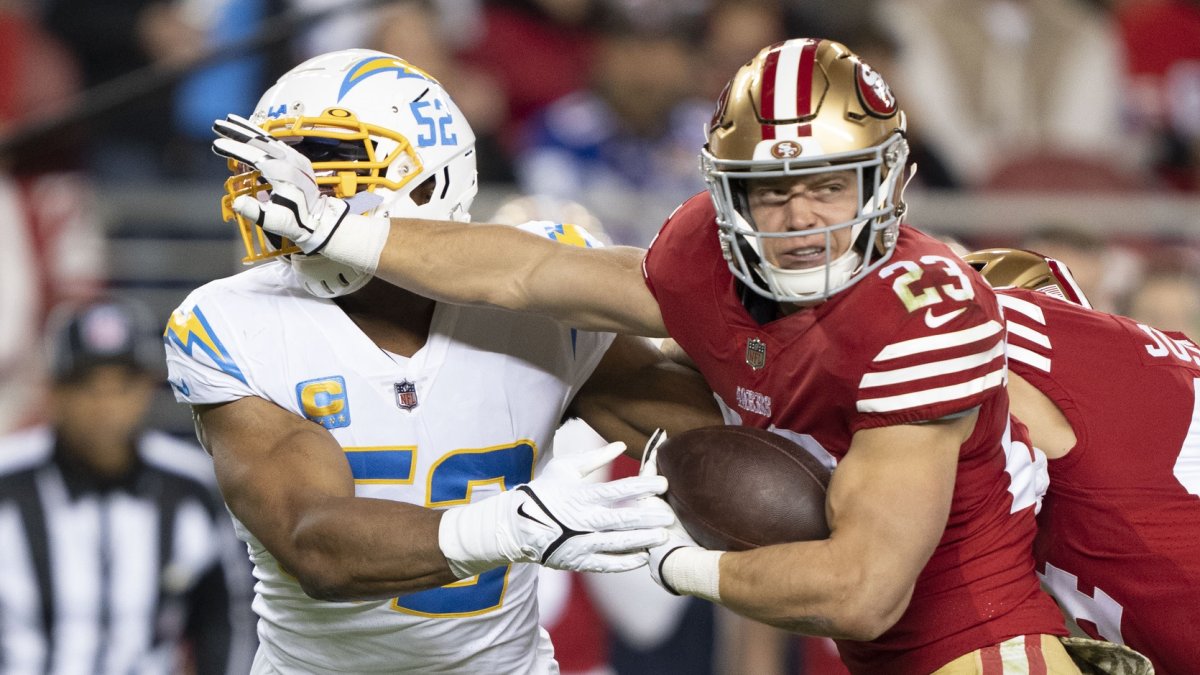• Christian McCaffrey: 14 carries, 38 yards, one touchdown; 4 receptions, 39 receiving yards
• DeAndre Carter: 4 receptions, 64 yards, one touchdown
PFF's fantasy football recap focuses on player usage and stats, breaking down all the vital information you need to achieve fantasy success in 2022.
Jump to another recap:
SEA@TB | DET@CHI | CLE@MIA | DEN@TEN
MIN@BUF | HOU@NYG | JAX@KC | NO@PIT
IND@LVR | DAL@GB | ARZ@LAR | LAC@SF


Elijah Mitchell's return: Mitchell suffered a knee injury in Week 1 and finally returned against the Chargers in Week 10.
- He significantly cut into Christian McCaffrey’s touches. He ran the ball more than McCaffrey, and he ran it more effectively.
- McCaffrey unsurprisingly kept all the receiving, but he also kept a lot of the goal-line work, which is how he found the end zone in the fourth quarter.
- McCaffrey is still a must-start and could still be a top-five running back going forward, but on limited touches, it will be harder for him to have weeks as the top overall running back.
- Mitchell could still have some standalone value going forward, particularly in games where the 49ers are clear favorites.
- Kyle Juszczyk also returned to San Francisco after missing the last two weeks. He lost most of his snaps on third downs but still got significant work as a true fullback.
- Deebo Samuel ran the ball four times, his most in a game since September. He also further complicates the backfield.

Monitor Gerald Everett‘s health: Everett played only 10 snaps against the 49ers, with his last snap coming in the middle of the second quarter.
- The Chargers later reported that he had a groin injury and was questionable to return, but he never did.
- Tre’ McKitty took over as the primary receiving tight end. McKitty has worked behind Everett for most of the season.
- Richard Rodgers remained a blocking tight end.
- McKitty’s target rate is by far the lowest among tight ends with at least 100 routes this season.
- He caught three passes for 21 yards tonight.
- He would be a waiver wire target in some deeper leagues if Everett’s injury is serious, as every tight end who sees the vast majority of routes on a team has value in some leagues.
Table Notes
• Snaps include plays called back due to penalties, including offensive holding or defensive pass interference. The other three stats have these plays removed.
• Targets may differ from official NFL sources. The most likely discrepancy would be from a clear thrown-away pass, where the NFL may give the target to the nearest receiver, while this data will not.
• Carries are only on designed plays. Quarterback scrambles won’t count for the total number of carries in the game.




 © 2024 PFF - all rights reserved.
© 2024 PFF - all rights reserved.